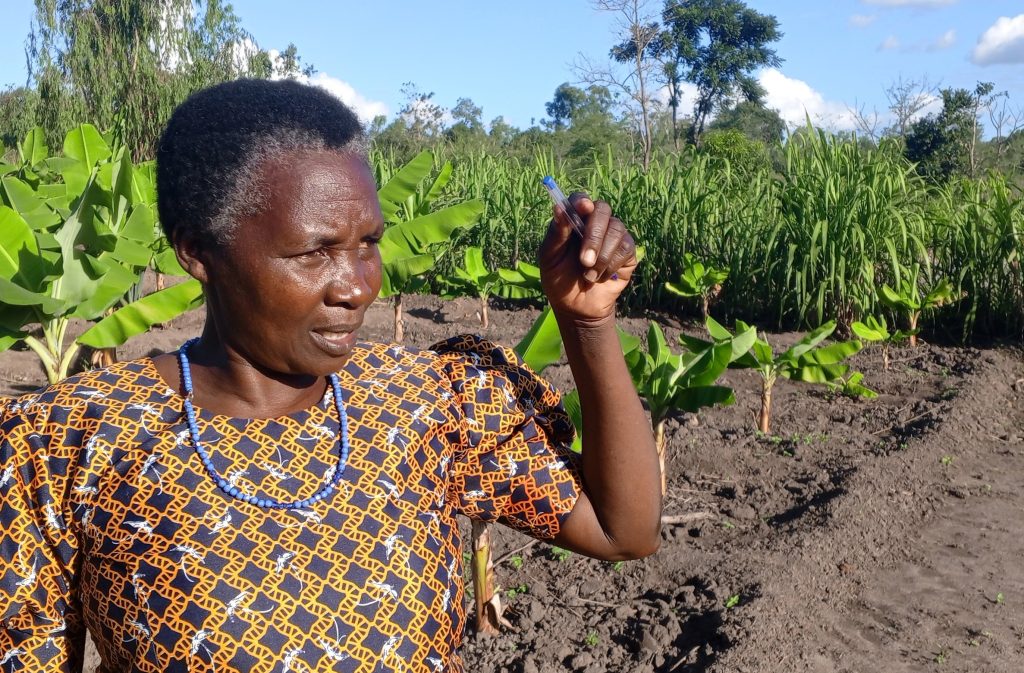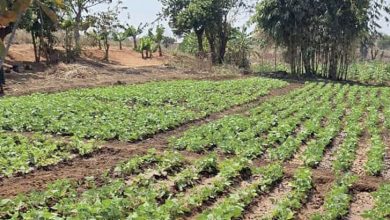Banana farmers hope to bounce back with a bang
Funny Kadzuwa is a farmer in Namputu Village of Group Village Head Chikumbu in Mulanje District.
A member of Tigwirizane Smallholder Farmers Club, she does not want to be drawn into discussing the banana bunchy top virus (BBTV) which affected 11 countries in the sub Saharan Africa, including Malawi.

“The disease is menace. It left banana growers destitute,” she said about the 2016 devastating disease.
According to the Ministry of Agriculture, the BBTV affected livelihoods of about 185 000 banana-dependent farming households, particularly in Mulanje and Thyolo.
Nearly nine years down the calendar, Malawi is yet to fully recover from the attack, but Kadzuwa says she focuses on capitalising government’s efforts and other stakeholders to revatilise the banana crop.
“It is sad that after we ventured into other crop production, there is nothing to write home about. So, I am back into banana growing, a cash crop that lifted the lives of many people in Mulanje,” she said.
Kadzuwa explained that from 2023, she started reorganising her banana farm after community sensitisation meetings and interface with agriculture officials from the district council.
The meetings aimed to encourage the farmers revamp banana growing.
She bemoaned challenges in accessing certified planting materials.
“Despite numerous calls, not many took the bold step because they are still devastated from their 2016 loss.
“The other challenge is that banana plants are expensive,” she said.
Kadzuwa further pointed out that there is no guarantee of the plants’ worthiness.
She explained: “Even for those that manage to buy, there have been cases of buying infected plants which resulted in fresh suffering because they affected other banana crops.”
Nation on Sunday discovered that a banana sucker costs between K 1 500 and K 2 500 in the two districts.
“But luckily for us, Centre for Agricultural Transformation (CAT) supplied us with clean banana plants with a technical package to revamp the crop,” Kadzuwa said.
CAT is an organidation that transforms the agricultural sector with a K90 million financial support from the National Bank of Malawi (NBM).
In January this year, it initiated a pilot project to rejuvenate the devastated banana crop in some parts of Mulanje and Thyolo.
The project established demonstration showcasing best practices in banana farming to help farmers and extension officers.
Mulanje District Council director of agricultural services Osmund Chapotoka acknowledged that the project has raised high hopes to banana farmers.
He said rejuvenated banana farming will go a long way in uplifting the lives of people from grassroots level.
Chapotoka said: “We recognise that the banking sector helps in many areas, including agriculture. This initiative of funding an organisation to revamp banana farming is one of a kind and our appreciation to NBM should not be taken lightly.”
He explained that the project has a great impact because of its tactical approach, more so that it is in line with the council’s development plan.
“The pilot project might look small, but it is great. We are talking about farmers having clean plants, knowledge and close monitoring by experts. In a few years’ time the fruits from this initiative will spill over to many areas and yield a big deal,” he observed.
Chapotoka noted that the project is also in line with their plan to revamp the banana crop by bringing in new suckers for farmers to plant to serve as a continuation of the replenishing process.
“We intend to bring bananas and other fruit professing plants, but this can only be possible when the crops are in good supply. One way is to have stakeholders such as NBM and CAT to help farmers and the council realise such a dream.”
In Thyolo, where the K90m CAT-NBM banana revamping cake is equally shared, Henry Makungwa, from Mwafunga Village, Traditional Authority Kwethemule says people are seeing light at the end of the tunnel.
He said the clean plants and expertise are a springboard to revitalise the crop.
Makungwa acknowledged that banana is a main cash crop for the Malawian in the district and it has transformed many lives.
“For many years, banana farming has helped people to educate their children and construct iron-roofed houses. When the crop was wiped up by the disease, we were grounded to zero. Efforts to revamp the banana farming has not been easy because the suckers we used were infected and we made no progress,” he said.
Makungwa lauded the plants under this project as clean.
He said the project was beneficial because it brings back survival to families.
Makungwa has since commended NBM and CAT for teching them modern farming techniques.
Thyolo District Council crop protection officer Nani Lazaro said the clean planting materials and trainings are beneficial to them and farmers.
He said: “We are also learning through the demonstration which is offering capacity building. We, however, want this clean plant and expertise to flourish across the district.”
The project targets over 600 farmers and so far, over 2 150 Grande Naine banana plants have been distributed in the two districts.
Through the introduction of innovative technologies and practices, the project aims to improve banana production and productivity, thereby boosting the farmers’ incomes and contributing to food security and improved livelihoods.





